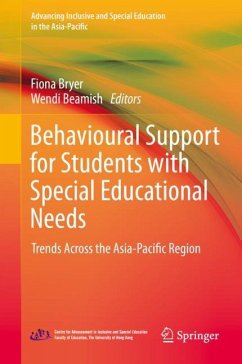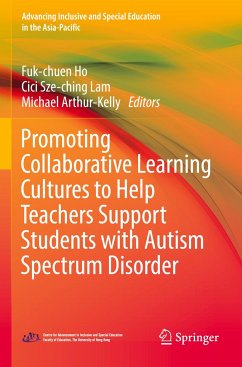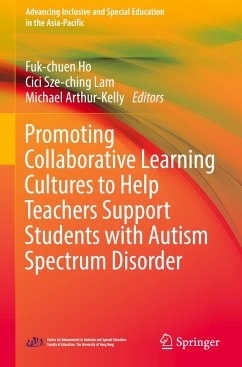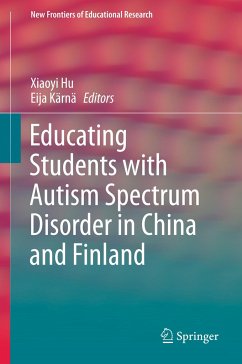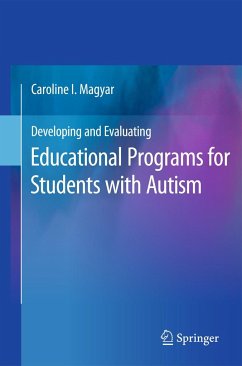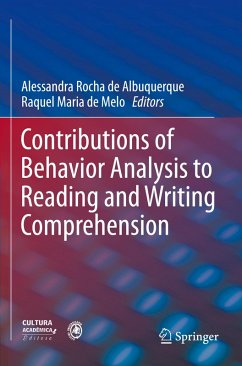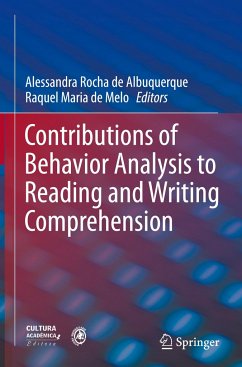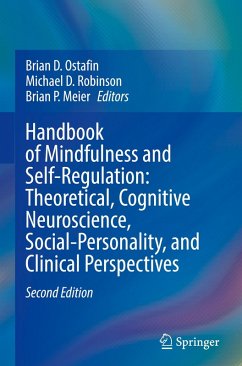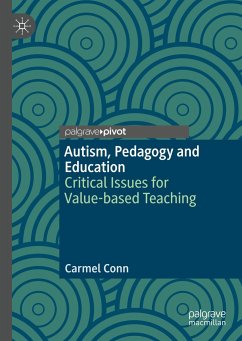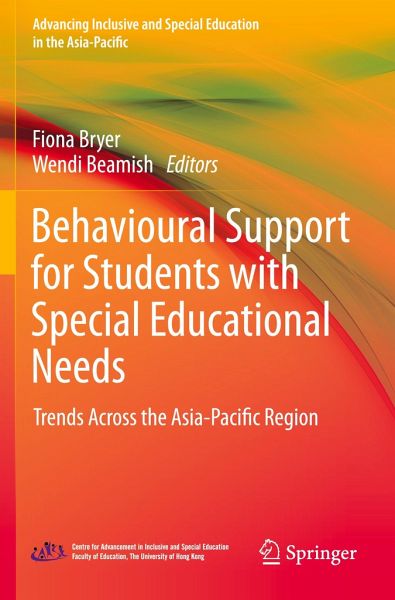
Behavioural Support for Students with Special Educational Needs
Trends Across the Asia-Pacific Region
Herausgegeben: Bryer, Fiona; Beamish, Wendi
Versandkostenfrei!
Versandfertig in 6-10 Tagen
53,99 €
inkl. MwSt.

PAYBACK Punkte
27 °P sammeln!
This book reports on the use of behavioural support - an evidence-based approach developed in the USA to meet students' special educational needs - in Australia and selected thriving Asian countries. It brings together key issues and insights into how educational policy and practices in different societies and cultures influence the uptake of behavioural support in schools and classrooms.The book provides a balanced and highly informative perspective on the historical paths of development and current expansion of behavioural support into regular schools in the USA. It also offers insights into...
This book reports on the use of behavioural support - an evidence-based approach developed in the USA to meet students' special educational needs - in Australia and selected thriving Asian countries. It brings together key issues and insights into how educational policy and practices in different societies and cultures influence the uptake of behavioural support in schools and classrooms.
The book provides a balanced and highly informative perspective on the historical paths of development and current expansion of behavioural support into regular schools in the USA. It also offers insights into the progress of its implementation outside the Western context of the USA and Europe and its influence on capacity building among professionals within various contexts across the Asia-Pacific region. Case studies from Australia demonstrate the effectiveness of multi-tiered behavioural support in a state government education system for a population of diverse students, and address the resultant adaptation of tiers when it is implemented in a nongovernment school organisation for students with autism. Case studies from Singapore, Mainland China, Hong Kong, South Korea and Japan reveal the cultural practices and organisational issues that produce distinctive characteristics of behavioural support in inclusive and special education within these countries.
This book offers essential guidance to educational decision-makers in these countries and communities around diverse students in considering their next steps towards using behavioural supports proposed in the American blueprints for implementing and building capacity for use in any context.
The book provides a balanced and highly informative perspective on the historical paths of development and current expansion of behavioural support into regular schools in the USA. It also offers insights into the progress of its implementation outside the Western context of the USA and Europe and its influence on capacity building among professionals within various contexts across the Asia-Pacific region. Case studies from Australia demonstrate the effectiveness of multi-tiered behavioural support in a state government education system for a population of diverse students, and address the resultant adaptation of tiers when it is implemented in a nongovernment school organisation for students with autism. Case studies from Singapore, Mainland China, Hong Kong, South Korea and Japan reveal the cultural practices and organisational issues that produce distinctive characteristics of behavioural support in inclusive and special education within these countries.
This book offers essential guidance to educational decision-makers in these countries and communities around diverse students in considering their next steps towards using behavioural supports proposed in the American blueprints for implementing and building capacity for use in any context.





